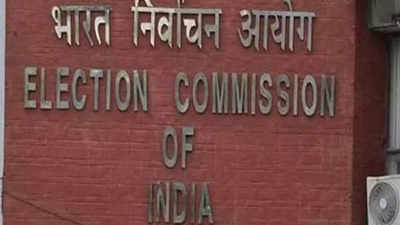- News
- India News
- EC’s graded easing of curbs allowed polls with low impact on Covid graph
Trending
This story is from March 7, 2022
EC’s graded easing of curbs allowed polls with low impact on Covid graph
The Madras High Court’s oral observations during the assembly polls last year — that Election Commission officials should be booked for murder for allowing physical rallies as the second Covid wave set in — may have weighed on EC’s mind as it took a call on scheduling the latest set of assembly polls in five states amid the rising Omicron cases.


All but one phase has passed with minimal impact of polls on the Covid graph. EC this time made it clear at the very outset that the Disaster Management Act placed the responsibility of managing Covid situation on the local administration, which must act as per directions of the state disaster management authority.
“Even though EC started with a complete ban on all forms of physical campaign, the parties and candidates took it positively and focused on a digital campaign and door-to-door canvassing. Of course, the restrictions eventually saw graded relaxations based on a careful assessment of Covid status with the Union and state governments as well as health experts. The easing of curbs related to allowing indoor meetings and eventually outdoor rallies, with a gradual raising of the attendance limit; and raising the cap for door-to-door canvassing and star campaigners. Padyatras and roadshows were allowed only when daily cases dipped substantially," an EC functionary told TOI.
"Thanks to this calibrated approach, not a single objection was raised by any section, regarding the curbs. We kept in mind the need of parties and candidates to campaign by timing the relaxations in such a way that their reach to the electorate during the statutory, 15-day campaign period was not compromised,” said the functionary.
What further helped matters is that the Omicron wave mostly saw mild infections and early recovery with minimal need for hospitalisation.
Prior to the poll announcement on January 8, 2022, there was a “suggestion” from an Allahabad High Court judge that postponement of polls be considered. Yet, EC decided to go ahead with the polls as a delay would necessitate an extended assembly term or imposition of President’s rule. “In retrospect, had EC postponed the polls, it would have been blamed for unnecessarily forcing President’s rule on the poll-bound states,” said an EC official.
EC had regular discussions with the Centre, state governments concerned and experts to evaluate the Covid situation on four parameters: daily Covid cases, weekly case positivity rate, hospitalisation rate and vaccination coverage.
“We pushed the state governments to target 100% or maximum possible first dose coverage and administer the second dose to all those eligible. Thanks to our efforts, the first dose and second dose coverage had risen by March 2 to 100% and 80% in UP, 100% and 95% in Uttarakhand, 96% and 71% in Punjab, 100% and 100% in Goa and 61% and 48% in Manipur respectively,” a senior EC functionary told TOI.
“We ensured that the entire polling staff was not only fully vaccinated but also got their ‘protection’ dose’,” added the functionary.
EC kept a regular track of the daily Covid cases, which peaked at around 32,000 on January 21 before falling to 3,000 on February 12 in the five poll-bound states.
End of Article
FOLLOW US ON SOCIAL MEDIA










